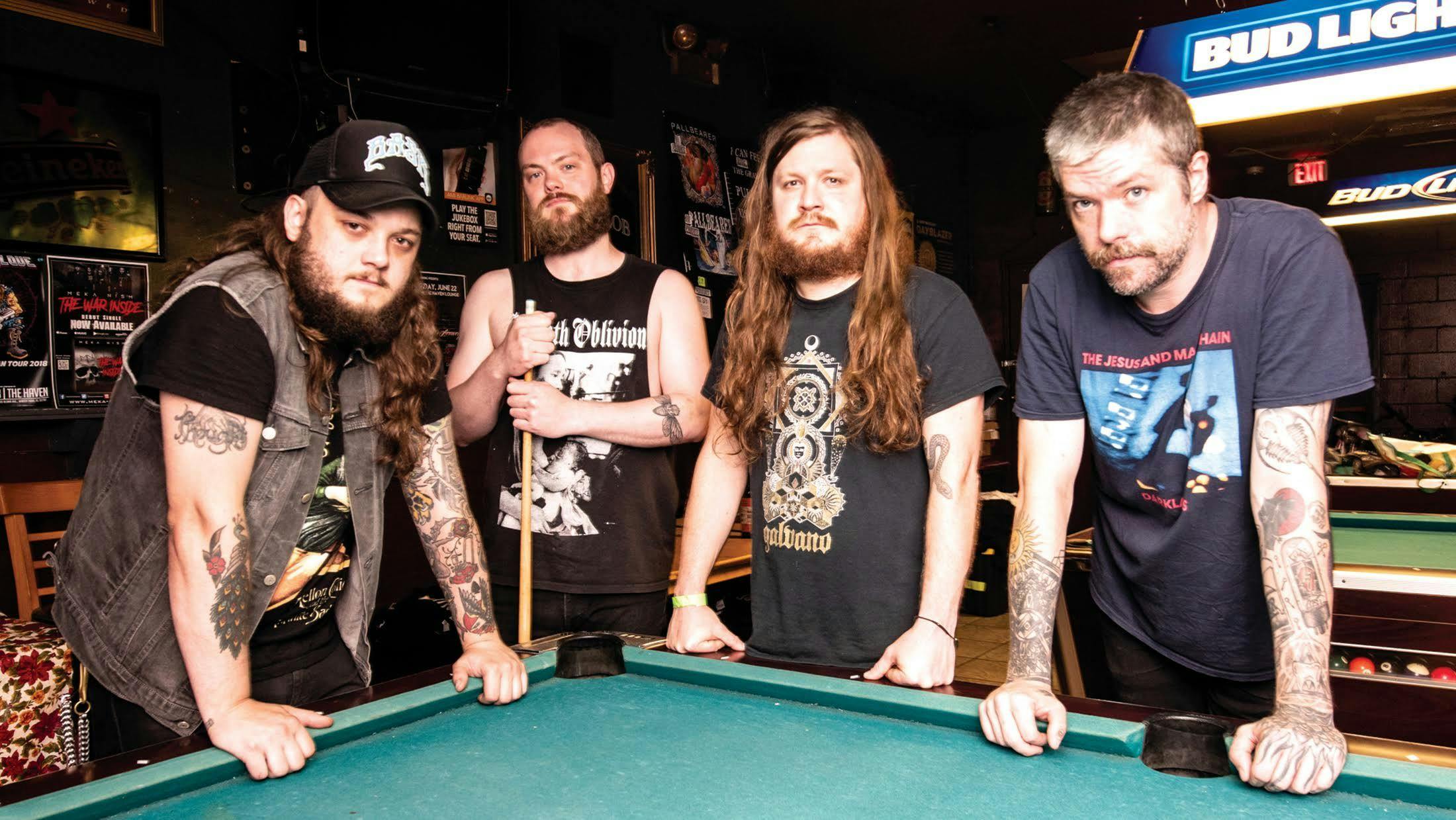“I was at my girlfriend’s house,” the frontman remembers, “and the verse riff popped into my head. I was like, ‘Oh shit,’ and started learning that riff. It went from initial conception to fully realised demo within about four hours.”
“We’ve had these big ideas from the beginning,” interjects Joe, modestly, “we just weren’t good enough to pull them off at the start. The biggest part of our musical evolution has been how hard we’ve worked at getting better.”
With that graft comes reward. They still struggle, though, to comprehend how far they’ve come.
“When we first started,” reflects Brett, “we never thought anyone would give a fuck. Our biggest goal was to maybe play a European festival one day. The last time I counted, two tours ago, we’d been to over 30 countries. As a dude who started out without any means of travel, that’s amazing.”
So, how far can the procession continue?
“I want to elevate this to even higher levels,” pitches Joe. “There’s no ceiling. I want to deliver the most enveloping experience possible.”
As a parting thought, we wonder whether, beyond simple brilliance, Pallbearer’s success is as a reflection of these troubled times.
“I’m just a slave to my brain,” says Brett, “more a vessel of arrangement than a songwriter…”
“If there’s zero hope, then what’s the point of going on?” ponders Joe, pointedly harking back to Pallbearer’s cathartic origins for the final word. “You need something to strive towards. Life itself is filled with tragedy, but there is hope to exist beyond that tragedy and continue living.
“Yes, the world feels like it’s falling apart, but maybe by some cosmic chance, we’ll make it through. That’s the essence of it.”
Words: Sam Law
Photo: Grizzlee Martin
Pallbearer headline a Kerrang! show at Saint Vitus, NYC, on July 30. The band return to the UK for Bloodstock.
